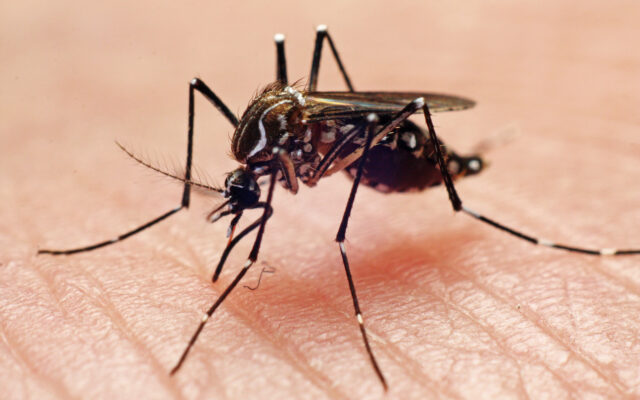City Reminds Citizens to Help Control Mosquito Population

While we are thankful for the much needed rain across Lubbock and the South Plains, we will also see an increase in mosquito activity. City of Lubbock Vector Control is working to keep mosquito populations low in public areas by treating mosquito breeding sites and fogging to reduce the number of adult mosquitoes. In addition, efforts will increase to treat sites that have rehydrated due to recent precipitation.
In addition to Vector Control efforts, the City of Lubbock Public Health Department is urging everyone to take steps around their homes to reduce mosquito populations. The steps you can take include:
- Dump standing water around your home. Empty containers such as buckets, flower pot saucers and trashcans where water can pool and become a breeding site for mosquitos.
- Mow grass and trim vegetation around your home since these are a food source for mosquitos and also serve as a resting place for them during the heat of the day.
- Clean gutters to eliminate clogs and prevent water buildup.
- Consider treating water features such as fountains with a larvicide and spraying exterior doorways and vegetation with an EPA registered mosquito spray formulated for the outdoors. When using chemical treatments, adhere to all manufacturer safety guidelines and recommendations.
Individuals should also take the following precautions to reduce mosquito exposure while outside especially around dawn and dusk:
- Wear an EPA registered insect repellant
- Cover up with long-sleeved shirts and long pants
Surveillance by the Public Health Department has identified West Nile Virus (WNV) in the local mosquito population. WNV will continue to be a risk until we begin to experience freezing weather. Please take care to not become infected with this virus.
Symptoms of WNV include headache, fever, muscle and joint aches, nausea and fatigue. If you are ill and suspect a mosquito-borne infection, you should contact your healthcare provider.
For more information on mosquito-borne diseases, visit the Texas Department of State Health Services website at: https://dshs.texas.gov/IDCU/



